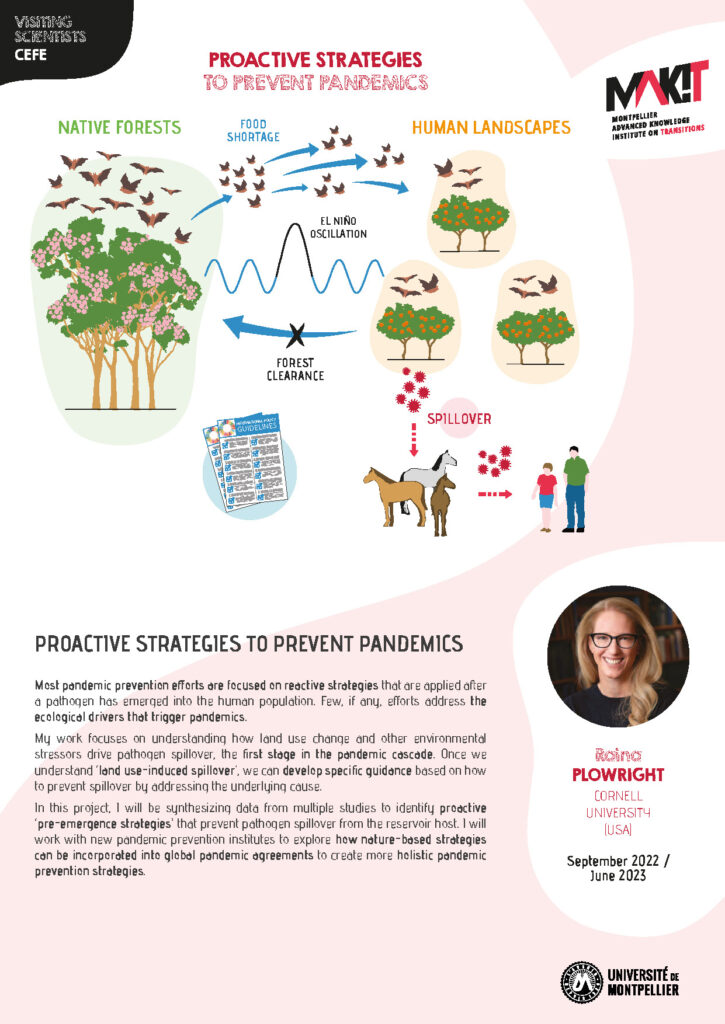Raina Plowright
Raina Plowright is a professor of Disease Ecology at Cornell University. She leads transdisciplinary teams to develop the science of pandemic prevention with a focus on World Health Organization (WHO)’s priority pathogens including coronaviruses and henipaviruses.
Her research focuses on the dynamics of zoonotic pathogens in reservoir host species, how pathogens are transmitted among species, and how land-use change drives cross species transmission. Dr Plowright leads Bat One Health (www.batonehealth.org), a collaboration of scientists working to predict and prevent zoonotic spillover by combining field data collection, modeling analyses, and laboratory investigation in multiple countries. They have ongoing field studies in bat populations in Bangladesh, Ghana, and Australia.
Dr Plowright is an elected fellow of the American Association for the Advancement of Science for her contributions to emerging disease biology. She has been an Australian-American Fulbright Fellow, an Australian Centenary Scholar, a David H. Smith Fellow in Conservation Research, and the recipient of a DARPA Young Faculty Award.
Her training is in veterinary medicine (University of Sydney), epidemiology (UC Davis MS), and ecology (UC Davis PhD)
Most pandemic prevention efforts are focused on reactive strategies that are applied after a pathogen has emerged into the human population. Few, if any, efforts address the ecological drivers that trigger pandemics. My work focuses on understanding how land use change and other environmental stressors drive pathogen spillover, the first stage in the pandemic cascade. Once we understand ‘land use-induced spillover’, we can develop specific guidance based on how to prevent spillover by addressing the underlying cause.
In this project, I will be synthesizing data from multiple studies to identify proactive ‘pre-emergence strategies’ that prevent pathogen spillover from the reservoir host. I will work with new pandemic prevention institutes to explore how nature-based strategies can be incorporated into global pandemic agreements to create more holistic pandemic prevention strategies.
